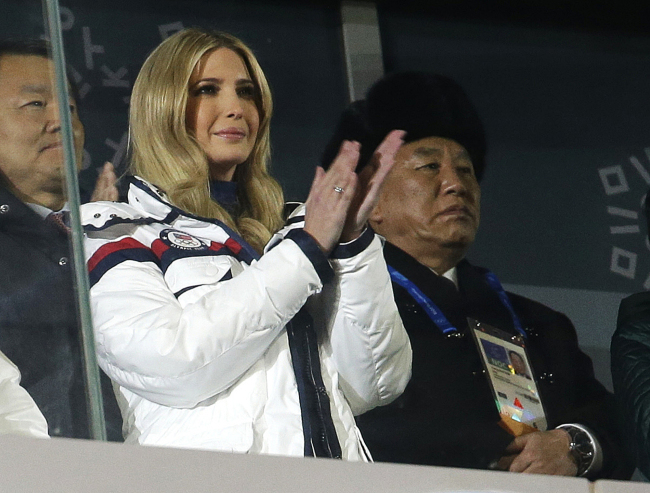South Korean President Moon Jae-in said that the US should lower the bar for talks with North Korea and dialogue between the two countries should begin soon, a day after a top North Korean official said that Pyongyang is willing to hold talks with Washington
“The US should lower its bar for talks with North Korea and North Korea should show its willingness for denuclearization,” Moon said while meeting with Chinese Vice Premier Liu Yangdong at the presidential office.
Attention is again on whether North Korea and the US will finally sit down for talks in line with the diplomatic opening created by the PyeongChang Winter Olympics.
Kim Yong-chol, head of a North Korean high-level delegation, met with President Moon Jae-in ahead of the closing of the PyeongChang Winter Olympics on Sunday and said his country has “ample intentions” to hold talks with the US, according to the presidential office.
Kim reiterated his country’s intention to talk to the US once again on Monday during his meeting with Chung Eui-yong, chief of South Korea’s National Security Council, an official from Cheong Wa Dae said on condition of anonymity.
Experts, however, say that prospects of dialogue between North Korea and the US remain dim.
There are still no signs that North Korea and the US have lowered their conditions to talk to each other, said Woo Jung-yeop, a researcher at the Sejong Institute.
“We have no evidence for now that North Korea’s willingness to talk to the US means that it is willing to talk about denuclearization,” he said.
“The thing is that there have been direct channels for dialogue between North Korea and the US if they wanted to. If North Korea was that desperate for talks, I think they would have talked directly to the US.”
He said that the barometer to test the North’s determination to talk to the US would come when the regular drills between South Korea and the US resume following the PyeongChang Paralympics.
North Korea, rather than the US, holds the key in making talks between Washington and Pyongyang possible, said Shin Beom-chul, a professor at the Korea National Diplomatic Academy.
“I don’t think North Korea and the US are desperate for talks for now,” he said.
“The South Korean government should persuade North Korea to talk to the US on denuclearization,” he said. “If it fails to do so while the North’s delegation is here, it should send an envoy to convince it to bring denuclearization to the negotiating table.”
On the surface, differences between North Korea and the US in their approach to ending the nuclear deadlock remain clear.
North Korea has maintained that it is open to talks with the US, but the country’s nuclear and missile programs are not up for negotiations. The US has also said that it is open to talks with North Korea, but only when North Korea shows willingness to discuss denuclearization.
The White House said in a statement Sunday that “there is a brighter path available for North Korea if it chooses denuclearization.”
“We will see if Pyongyang’s message today, that it is willing to hold talks, represents the first steps along the path to denuclearization,” the statement read. “In the meantime, the US and the world must continue to make clear that North Korea’s nuclear and missile programs are a dead end.”
There was no interaction between Ivanka Trump, the daughter of US President Donald Trump who led a US delegation to the closing of the Olympics, and Kim Yong-chol at the closing ceremony, though they sat close to each other in the VIP box.
Whether officials from the US and North Korea had any meetings behind the scenes while both sides were in South Korea on Sunday and Monday has not been confirmed.
“There was no interaction with the North Korean delegation,” a Trump administration official was quoted as saying by the US media.
Ivanka Trump, senior adviser to the White House, was seen focusing on cheering for American athletes and reaffirming the US’ commitment to the “maximum pressure” campaign through sanctions against North Korea.
Speculations mounted over their interaction as Choe Kang-il, deputy director-general for North American affairs at the North’s Foreign Ministry, was among the North Korean delegation.
The US delegation included Allison Hooker, the National Security Council official in charge of Korean affairs. She accompanied James Clapper, then-director of national intelligence, to North Korea in 2014 to secure the release of two Americans detained by the reclusive regime.
By Ock Hyun-ju (
laeticia.ock@heraldcorp.com)








